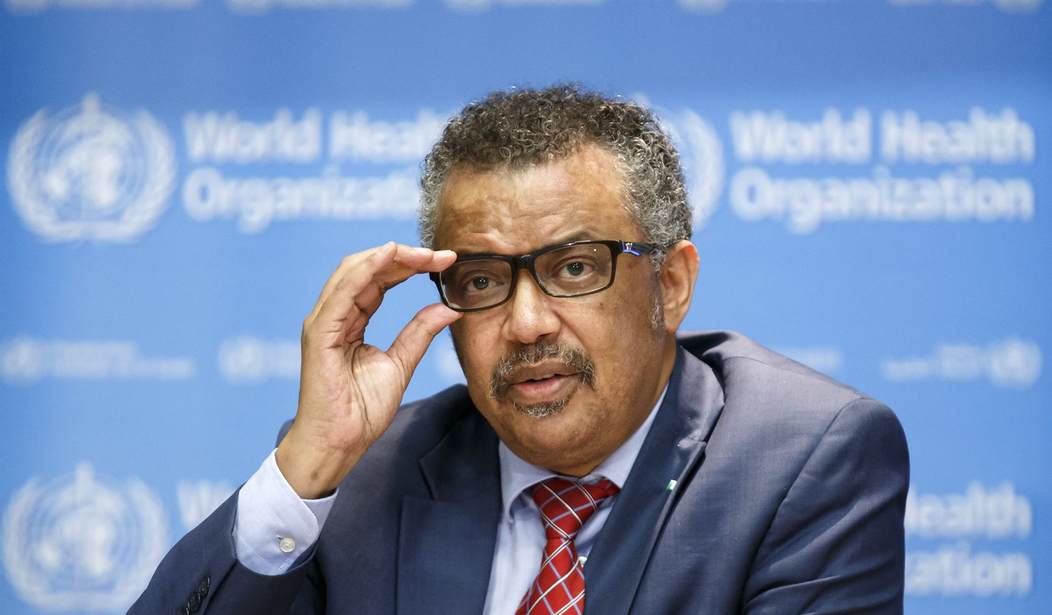On Tuesday, the World Health Organization (WHO) announced that it was renaming the monkeypox, as Bloomberg's Madison Muller reported. The move comes after over 30 international scientists warned on June 10 that there was an "Urgent need for a non-discriminatory and non-stigmatizing nomenclature for monkeypox virus." The letter refers to the virus as MPVX.
In the letter's background, the scientists note that while the virus is associated with Africa, "a recent global outbreak of MPVX has been detected without a clear link to Africa."
At one point, the letter notes:
The prevailing perception in the international media and scientific literature is that MPXV is endemic in people in some African countries. However, it is well established that nearly all MPXV outbreaks in Africa prior to the 2022 outbreak, have been the result of spillover from animals to humans and only rarely have there been reports of sustained human-to-human transmissions. In the context of the current global outbreak, continued reference to, and nomenclature of this virus being African is not only inaccurate but is also discriminatory and stigmatizing...
Muller's report includes a statement from WHO's Director General Tedros Adhanom Ghebreyesus, who quickly acquiesced and said during a media briefing they will be "working with partners and experts from around the world on changing the name of monkeypox virus, its clades and the disease it causes" and the new names will be announced as soon as possible.
As Muller also wrote:
The WHO is consulting experts in orthopoxviruses -- the family to which monkeypox belongs -- on more appropriate names, a spokesperson said. Other disease names that run counter to the guidelines include swine flu, according to joint recommendations from the WHO, the World Organization for Animal Health and the Food and Agriculture Organization of the United Nations.
Naming diseases “should be done with the aim to minimize the negative impact,” the spokesperson said in an email, “and avoid causing offense to any cultural, social, national, regional, professional or ethnic groups.”
Monkeypox has been endemic in west and central Africa for decades, but cases have primarily been associated with spillover from animals, rather than human-to-human transmission. In past outbreaks outside African countries, such as in the US in 2003, cases were linked to contact with animals carrying the virus or travel to regions where it is endemic. While it’s still unclear how monkeypox entered humans in the current outbreak, the virus has been spreading through close, intimate contact -- a change from earlier episodes.
Recommended
Muller's report and reporting from Shawna Chen at Axios also make reference to the Wuhan Coronavirus and concerns that it was being associated with China and Chinese people. The virus came from, Wuhan, China, though, and a compelling theory argues that it originated at the Wuhan Institute of Virology.
Even the WHO looks to potentially be more open to this theory, according to a report from the body.
The WHO doesn't plan to stop there, though. As Paul Best reported for Fox News:
Ghebreyesus also said that the WHO will convene an emergency meeting next week to determine whether the spread of monkeypox should be considered a public health emergency worldwide.
"The outbreak of monkeypox is unusual and concerning," Ghebreyesus said Tuesday. "For that reason, I have decided to convene the emergency committee under the international health regulations next week to assess whether this outbreak represents a public health emergency of international concern."
The smallpox vaccine, according to the Centers for Disease Control (CDC), can help protect against monkeypox. It's worth noting that the CDC itself also mentions Africa. "Monkeypox is an emerging infection in Africa and outbreaks of imported cases of monkeypox sometimes happen in other countries, including the United States," a page effective as of June 1 reads.
The WHO's authority has been the concern for many, which it looks to potentially expand, with a coming pandemic treaty to be considered. Rep. Andy Biggs (R-AZ) on June 3 thus introduced The WHO Withdrawal Act. A press release explains it "repeals the law that originally authorized the United States to join the WHO, and prevents taxpayer money from being spent to participate in the WHO."
"Despite the WHO’s failure to objectively provide health guidance to the world, President Biden now seeks to give the WHO more authority to define what a pandemic is, how long a pandemic lasts, and encroach upon the sovereignty of nation’s like ours. It’s unacceptable. My legislation ensures that we protect American interests first," Rep. Biggs said.
The letter from scientists mentions that as of June 8, there were 1,111 cases with the virus being detected in 44 countries. According to the CDC, as of June 14 there are 72 cases spread out across 17 states and the District of Columbia.
"The WHO" has been trending on Twitter for Wednesday over such news.

























Join the conversation as a VIP Member